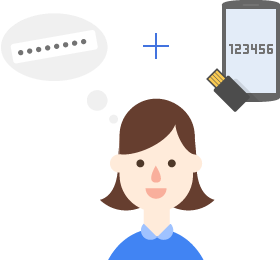
Android announced two new security measures including additional identification requirements and two-step verification.
Account owners of developer accounts will also be asked to provide their account type, a contact name, physical address and verification of the email address and phone number.
“In August, all new developer accounts will need to specify their account type and verify their contact information at sign-up. We will also make 2-Step Verification a requirement for the owners of new developer accounts,” Luke Jefferson, product manager at Google Play, and Raz Lev, product manager at Google Play Trust and Safety, wrote in a post.
Additional details are available here.
Solo.io advances modern API infrastructure with new product enhancements
Solo.io announced the general availability of Gloo Edge 1.8 and Gloo Portal 1.0 to boost the functionality in enterprise production environments.
Gloo Edge 1.8 is the company’s API gateway based on Envoy Proxy and Gloo Portal 1.0 is a full-feature developer portal for API management to catalog and share APIs.
“We are also excited to offer support for SOAP — and we’re the only vendor in the market to offer this critical feature. Our customers had been asking for a solution to SOAP, since they were forced to rely on old API gateway technologies in the absence of a clear migration path. Now our customers have modern, cloud native support,” said Idit Levine, CEO of Solo.io.
JFrog acquires Vdoo for $300 million
Under the acquisition, Vdoo’s team and entire technology portfolio will be incorporated into JFrog to deliver a solution that unifies development and security teams.
The expanded solution will include the ability to scan in context and then apply contextual threat analysis and application scanning that prioritizes critical security gaps.
New capabilities will also include the scanning of compiled C/C++ software; support for various embedded Linux, Android and RTOS formats; and active runtime monitoring and protection for these devices.
Sentry announces new code observability capabilities for Next.js
Sentry announced that it has expanded its code observability capabilities to include error performance and monitoring for Next.js.
The new SDK provides an out-of-the-box streamlined developer experience with context that can be used to determine how to solve issues comprehensively and enable developers to continuously learn how to improve the health of their Next.js apps.
“Adding support for Next.js further expands the breadth and depth of our footprint in code observability, making our product accessible for development teams building with modern architectures. And serving all developers—across all of their projects—has always been our mission,” said David Cramer, co-founder and CTO of Sentry.
Micro Focus’s Voltage SecureData supports Amazon Macie
Micro Focus announced Voltage SecureData Support for Amazon Macie, which allows customers to automate data-centric protection onto data discovery, classification and remediation processes.
“As organizations manage growing volumes of data, identifying and protecting their sensitive data at scale can become increasingly complex, expensive, and time-consuming,” said Sid Dutta, senior data security product executive of CyberRes. “Further, in the information lifecycle management processes, the various stages of the data lifecycle are typically disjointed. With the new Voltage SecureData integration with Amazon Macie, AWS customers are offered an automated end-to-end data-centric protection mechanism that can minimize the possibility of incidents escalating into breaches.”
Additional details are available here.






